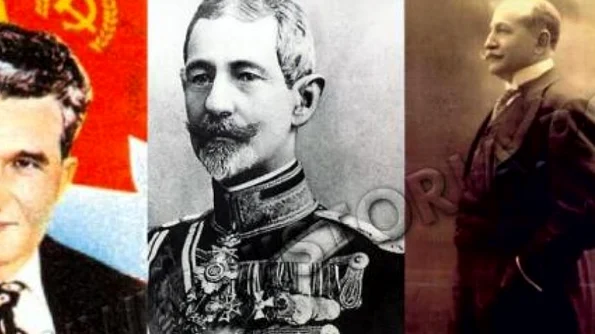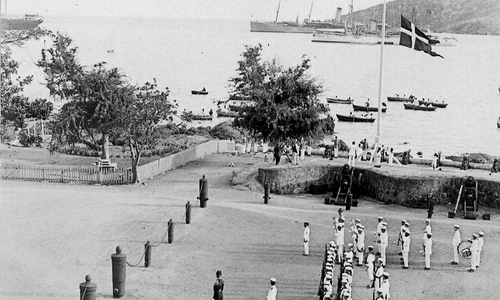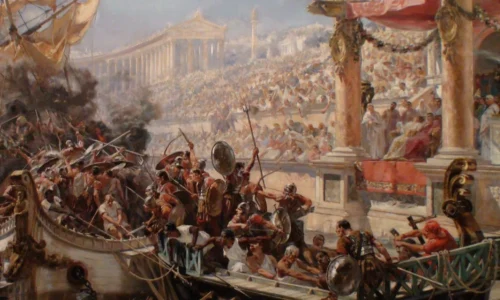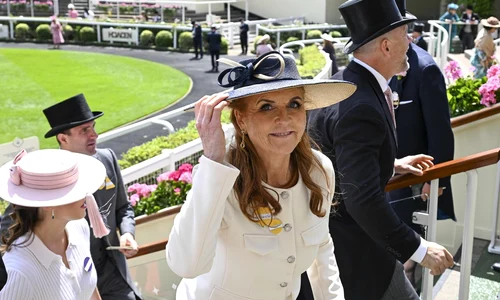
Top 5 Most Influential Romanians of the 20th Century
They were very charismatic. Their opponents were afraid of them and, most importantly, the people venerated them. Yet, some disappointed and others remained until the end very important figures in the history of the Romanians in the 20thcentury. Millions of people thought that they would change the face of Romania and thus, believed in them completely. This top 5 does not intended to be definitive, however, nobody can deny these people’s influence.
1. Corneliu Zelea Codreanu
He was born on September 13th, 1889 under the real name Corneliu Zielinski Codreanu. He went to school in Iaşi and Huşi and finally graduated from the military high school of Mănăstirea Dealu. Between 1917 and 1918, he was enrolled at the Infantry School in Botoşani. Codreanu was a virulent anti-Communist and thus, in 1919 he entered the anti-Communist group called the Guard of the National Conscience where he became known as the one who broke up the strike at the Nicolina CFR Workshops.
In 1922 in Iaşi, Codreanu established the Association of Christian Students which attracted an important group of followers. They managed to block the entrance into the University, after it was decided that the academic year would begin without its traditional religious service. In 1923, he became a member of the profoundly anti-Semitic and anti-democratic National Christian Defence League. In 1925, he married Ileana Ilinoiu – the modest daughter of a railroad worker – in a fairytale wedding ceremony attended by 100.000 people. In 1927, he founded the Fascist and Revolutionary organization The Legion of Archangel Michael (and later on renamed as The Iron Guard or Everything for the Country). Codreanu managed to transform this group into a real mass movement which reached over 1 million followers. He was maybe the most charismatic leader in the History of Romania:he managed to create for himself an aura of a providential leader, the saviour of Romania. Also, his demonstrations and marches on the streets of Bucharest as well as the vivid speeches in the Romanian Parliament brought the Iron Guard success in 1937 elections.
2. Nicolae Ceauşescu
He was born in a peasant family on January 26th, 1918 in the village of Scorniceşti, in the Olt county. At the age of 12, Ceauşescu left for Bucharest where he worked as an apprentice at his brother-in-law’s shoe shop. He adhered to the Marxist – Leninist ideology in 1932 and was arrested for the first time in 1934 for Communist activities. While the Communist Party was illegal in Romania, Ceauşescu did not enjoy a very important place among the groups of imprisoned Communists. However, his ascension began after 1947 when he became firstly a minister, then a member of the Central Committee of the Romanian Worker’s Party and a member of the Political Bureau of the Party. Ceauşescu distinguished himself as a charismatic leader as his public appearances became more frequent and as the distance between Moscow and Bucharest widened visibly. The speech of August 21st, 1968, is maybe the most exalting and enthusiastic speech of a Romanian leader, because the masses fully approved of his condemnation of the Soviet invasion of Czechoslovakia. Although many a time his speeches did not meet the basic rules of Romanian grammar, Ceauşescu managed to win the sympathy of the crowds as well as 2ndplace on our top.
3. Alexandru Averescu.
Born on March 9th, 1859 in Ismail (nowadays Ukraine), Averescu was a general, marshal, politician and member of the Romanian Academy (1923). Between 1911 and 1913, he held the position of General Chief of Staff which gave him the possibility to coordinate the Romanian Army during the Second Balkan War. Averescu became very famous after he led the Second Army to winning the famous battles of Mărăşeşti and Oituz during the First World War. He was entrusted with the task of forming a new government, yet he relinquished it very rapidly, partly because of the fact that he failed to conclude the peace. On April 3rd, 1918, Averescu established his own party called The People’s League. At the beginning of the 1920s, Averescu’s popularity rocketed, thus making Constantin Argetoianu to write in his diary that “In the villages, people dreamed of him and some swore they saw him coming out of an airplane and the ones who fought with him told stories of living with him in the trenches. Averescu’s name was on every peasant’s lips;only he could save them and bring them a carefree life.”Yet, Averescu was engaged in a losing conflict with the very influent Ionel Brătianu, a conflict which also brought about the end of his political career. He might have been a better soldier than politician, yet he deserves 3rdplace in our top for his charisma.
4. Take Ionescu
Born on October 13th, 1858 in Ploieşti, Ionescu came from a family which was related to the one of Ion Heliade Rădulescu. After the Baccalaureate exam, he left for Paris at the tender age of 17 where he distinguished himself as a future charismatic political leader. At a congress, he managed to outdo the famous Hungarian general Thurr thus winning the sympathy of the audience. Ionescu began his political career in the Liberal Party, yet he rapidly switched to the Conservative Party. He entered the Parliament at the age of 26 where he held vivid speeches in front of very important people of the time such asNicolae Filipescu, Petre P. Carp or Alexandru Marghiloman. For the public opinion, he became Take “golden mouth”. His death was very strange in the least, since he passed away of typhoid fever after eating two oysters at a restaurant in Rome. Take “golden mouth” deserves the 4thplace in our top.
5. Ion Iliescu
Born on March 3rd, 1930 in Olteniţa, Ion Iliescu ascended to real fame in the post-Communist era when he proved himself to be an adroit and charismatic politician. He became a member of the Communist Party in 1953 and began his political career as the leader of the youth organization of the Party. Ceauşescu felt threatened by Iliescu’s political abilities as well as his youth and therefore, decided to gradually marginalize him since 1971. Firstly, he was sent to the Timiş county as the vice president of the County Council and afterwards, he held the same position in Iaşi. Iliescu became known as the foremost leader of the 1989 Revolution. Also in 1989, a new version of him was born:Ion Iliescu, the man of the masses. Iliescu turned out to be the favourite leader of the masses (however, the opposition accused him of being a neo-Commmunist) thanks to his speeches which evoked the realities of a new post-Communist society. He received standing ovations during every speech in his electoral campaigns. The proof of his popularity is that he won twice the elections of 1990 and 1992 as well the 5thposition in this top.















